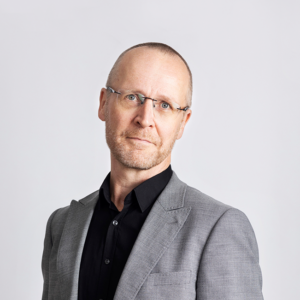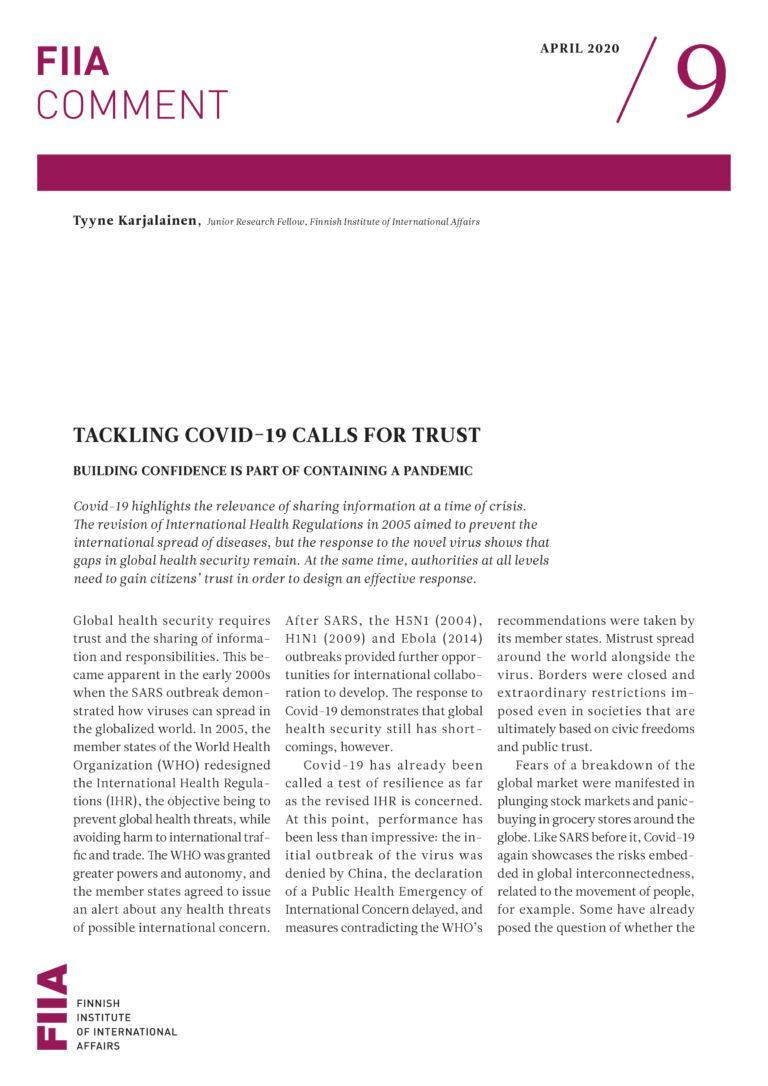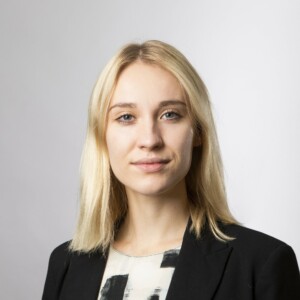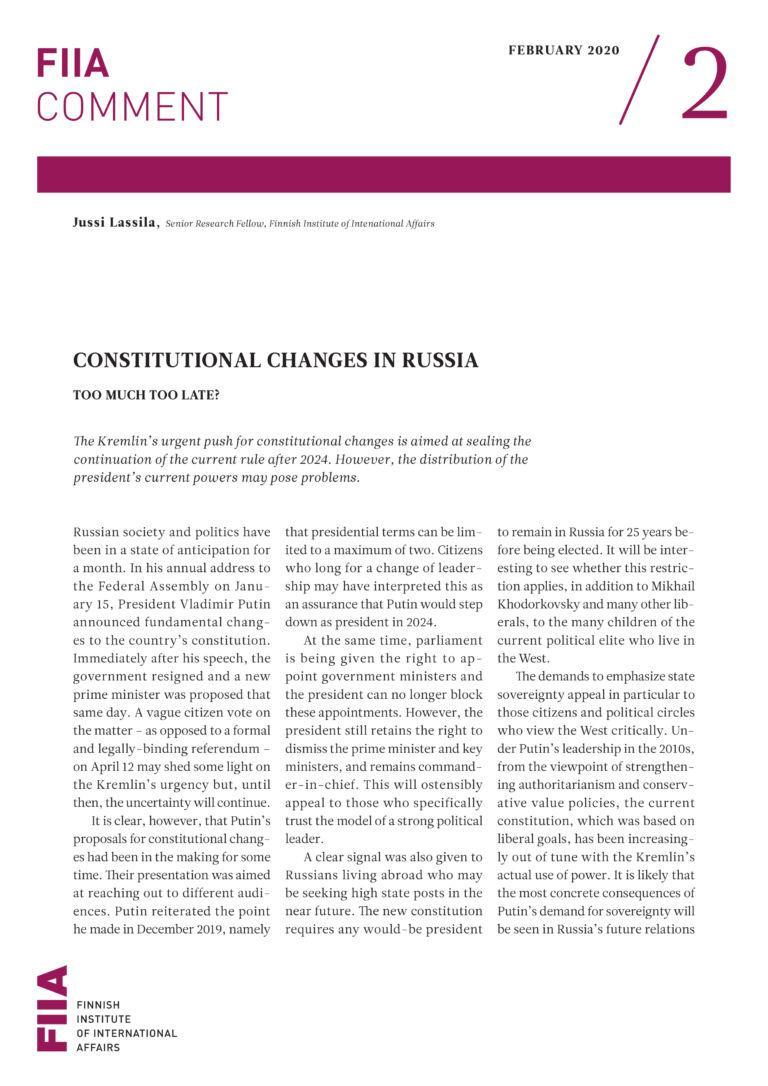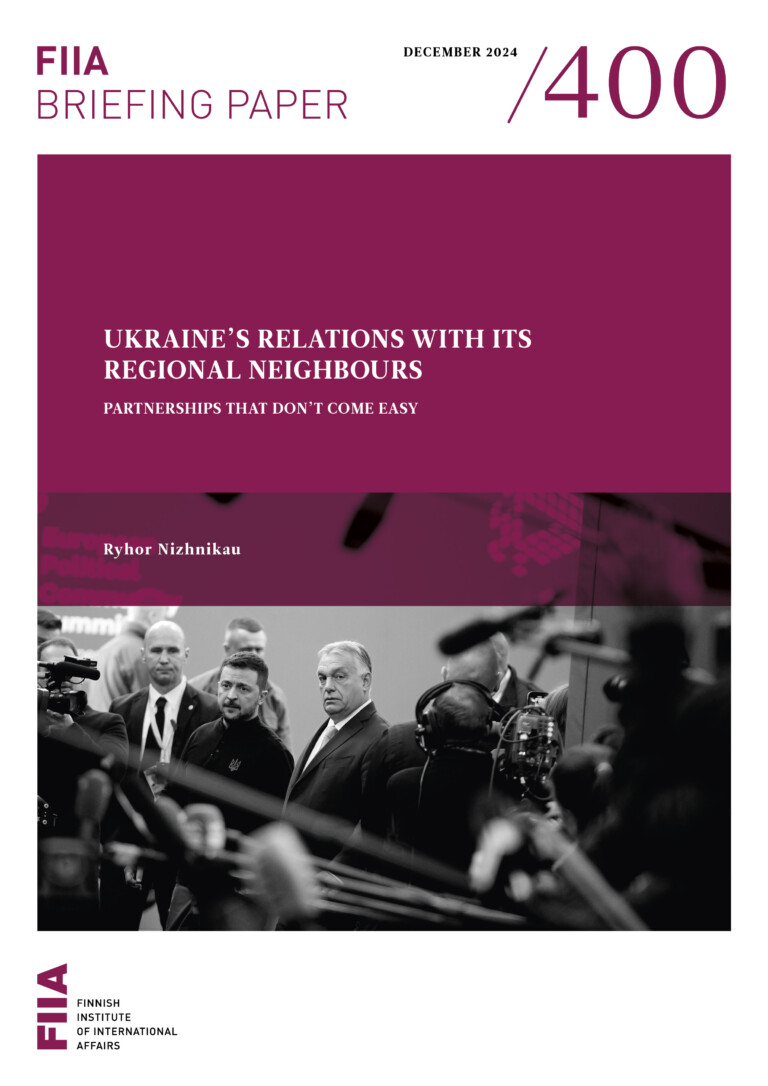In Russia, the confirmed Covid-19 infections have been suspiciously few. The official numbers do not reflect reality as there has been no systematic testing at any phase of the epidemic. Now, however, the number of cases has risen rapidly, and the new situation has an effect on the Kremlin’s position in the eyes of the people.
Russia has been following the reactions of the rest of the world and has taken similar actions to control the spread of the coronavirus. Borders have been closed and citizens have been quarantined. In Moscow, face recognition systems and surveillance cameras have been employed to monitor those who should obey quarantine rules.
On March 25, President Vladimir Putin declared a week’s paid holiday so that people would voluntarily stay home. The statements by the Mayor of Moscow, Sergei Sobyanin, were much stricter in tone, and on April 2, Putin extended the order until the end of the month. The differences in instructions reflect the inconsistency within the political leadership.
Russia’s actions can be compared with those of China in particular. During the critical early stages of the epidemic, China concealed the spread of the disease and downplayed its characteristics. The information policies of authoritarian regimes in the face of an imminent pandemic are an obvious global risk, as it is important to obtain reliable information for precautionary measures as soon as possible. Yet once the nature of the disease became obvious, China’s authoritarian system demonstrated its effectiveness.
However, unlike China, Russia’s capacity to control the internet is limited. News provided by independent sources, coupled with inconsistencies in the Kremlin’s information policy and measures, have increased public distrust of the authorities. There are also strong historical grounds for distrust.
For many Russians, the quarantine operations appear to be exaggerated, especially when the state television simultaneously ridicules the “panicking” in the West. Some Russians regard the authorities’ actions as nonsense and suspect that the real reason for them lies elsewhere. On the other hand, many believe that the Covid-19 situation is much worse than reported.
The Russian healthcare system is in deep crisis in many regions, but the lack of resources is no longer the only problem. The regime’s inconsistent information policies, dating back to the Soviet era, are partially watering down the treatment of the epidemic. For example, there is a wealth of lung disease-related expertise in Russia, but citizens’ lack of trust might hamper this potential.
On the other hand, the negative impact on the regime’s legitimacy is possibly less significant in Russia than in Western democracies. People in the West have grown accustomed to trusting the healthcare system and the authorities, so their shock may be greater than in a low-trust society such as Russia. However, the Kremlin’s key problem is the current political situation. After realizing that the present system cannot continue without Putin after 2024, the administration hurried to finalize the process that began in January by resetting Putin’s presidential terms on March 10. The constitutional gateway for what amounts to Putin's lifelong presidency until 2036 is now open.
The political play, comprising the resignation of the government and prime minister, changes to the constitution, and the cementing of Putin’s position, demonstrate the Kremlin’s increasingly arrogant approach. Despite the president’s legalistic rhetoric, even the most formal democratic principles are not respected. This blatant style could already be seen in the aftermath of the 2019 regional elections in Moscow, when the authorities harshly suppressed the protests.
Putin has personally considered it important that the new constitution receives broad support from citizens. Initially this was to be measured in a ballot on April 22, but due to the pandemic, Putin postponed the vote. Legally, however, the constitutional process does not depend on the outcome of the vote. The symbolic support is the main point: even if no one believes that the Kremlin-run play is a true story, Putin insists on hearing applause. For this reason, for example, using the state of emergency to cancel the vote is not an option for him.
The severe pandemic creates a new context for Russian politics. Citizens’ symbolic support for the regime would be particularly important this spring as the Kremlin blatantly goes about reorganizing the political structures. At the same time, it has become clear that support for Putin is conditional. In February, 27% of Russians wanted him to continue as president after 2024, while 34% hoped he would leave politics. There is still time until 2024, but the unpredictable economic consequences of the pandemic will pose a serious risk to Putin’s political project.
Yet the pandemic now threatens another politically important event this spring. The Russian leadership has consistently appealed to national pride by emphasizing the great history of the country. This year, Victory Day on May 9 is expected to be particularly massive as it celebrates the 75th anniversary of the end of World War II. While Western leaders have avoided attending the festivities for political reasons since 2014, health precautions may now keep even Putin’s closest colleagues away. The most embarrassing outcome, however, would be empty streets in Russian cities – Victory Day celebrations have traditionally attracted huge crowds.
Postponing the constitutional vote threatens the credibility of the Kremlin’s play. When the epidemic escalates and economic situation deteriorates further, citizens’ support for the political leadership and willingness to adjust to the situation may dwindle. Indeed, the rapidly spreading virus will force the country’s leadership to deal with deeper distrust among citizens in addition to the growing concerns about health.


